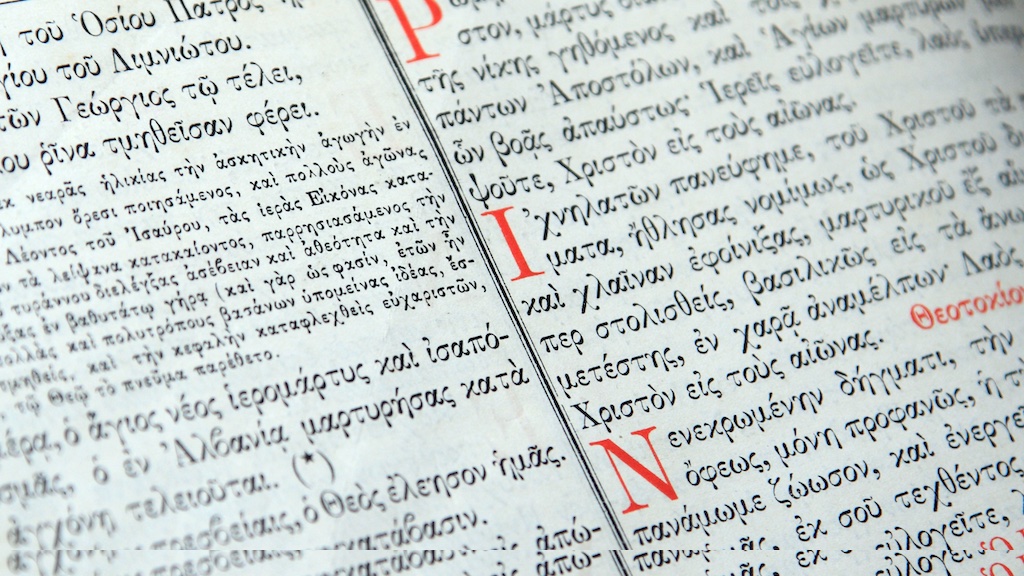Renewal of the Covenant
“When He calls this covenant ‘new,’ He has made the first one obsolete and whatever is becoming obsolete and growing old is ready to disappear.” (Hebrews 8:13)
So there it is. The old covenant is ready to disappear. It has been replaced by a new covenant. This is proof of God’s love and God’s faithfulness to His people Israel.
What is Hebrews chapter 8 all about? The main point is that we have a unique high priest, one who is different from the high priest serving in the earthly temple. Chapter 8 begins: “We have such a high priest, who has taken His seat at the right hand of the throne of the Majesty in the heavens” (verse 1). In other words, He shares in the glory and majesty of God. But the letter to the Hebrews also tells us that He is serving in the heavenly sanctuary, of which the earthly sanctuary with its priests is a reflection. In what respect does the ministry of this High priest differ from that of the earthly priests? Hebrews tells us: this High priest does not need first to do atonement for his own sins. He is of a different order. And therefore, a different covenant is appropriate.
By the way, we should not associate the term ‘old covenant’ with the books of the Old Testament as opposed to those of the New Testament or New Covenant. At the time the letter to the Hebrews was written, the apostolic letters may have been in circulation. But the New Testament as a whole was still to be compiled. The Bible of the first believers in Christ was the Old Testament, in most cases (like in Hebrews) in its Greek version, namely the Septuagint.
Moreover, we must keep in mind that the letter to the Hebrews was written to Jews who believed in Jesus as the Messiah. The ‘church’ as a separate body, apart from and next to Israel, did not exist yet. This would still take centuries. The movement of people who believed in Jesus as the Messiah was still mainly to be found within Judaism of those days. So we should take the word covenant as it is meant: God’s covenant with Israel. Everything discussed is to be taken as an inner-Jewish debate.
Now, this old covenant was inadequate. Or better, the people who had to administer it, the priests, fell short of being a perfect sacrifice to atone for the sins of the people. Because of their own sins, they had to sacrifice for themselves first. Moreover, Israel time and again fell into sin, so much so that they broke the covenant. That was the weakness of the old covenant. The writer to the Hebrews cites words spoken by the prophet Jeremiah (Jeremiah 31:31-34). Israel, says God through the prophet, has broken My covenant. Has God then now, from His side, broken the covenant? No! He has renewed the broken covenant! “Behold, days are coming, declares the Lord, when I will make a new covenant with the house of Israel and with the house of Judah.”
The Hebrew of Jeremiah 31 means a renewal of the covenant rather than an entirely new and different covenant. The same is true for the Greek of Hebrews 8 (and the Septuagint). The covenant is renewed, but the partners of the covenant remain the same. That is to say, God is again making a covenant with Israel, but in doing so, He is renewing Israel too: “I will put My laws into their minds, and I will write them on their hearts” (Hebrews 8:10, Jeremiah 31:33). From the depth of their hearts, Israel will be motivated by the Holy Spirit to live according to the rules of the covenant, God’s commandments. In other words, the conditions of the covenant are renewed – the old one was ‘worn out’ and ‘growing old’ (verse 13). But the content remains the same. Moreover, the fulfilment of the purpose of the covenant is now firmly established. God can and will abide with Israel because He has sanctified them through the self-sacrifice of the Messiah.
Finally, we must note that the writer is referring to the Sinai covenant (and more precisely, the Levitical covenant, concerning the temple office). He does not mean the covenant with Abraham here, in which God promised a land, a nation and a blessing. The promise to Abraham is mentioned in chapter 6 (verses 23) of the letter. That promise and that covenant continue to be valid. But living in the promised land is dependent on Israel obeying God’s commandments. When the Lord writes His laws in their hearts, they will live in accordance with them. So the renewed covenant affirms the land promise and makes living in the land really possible. We conclude that the new covenant was made with Israel. Next time, we will go further into the text of Hebrews 8.





